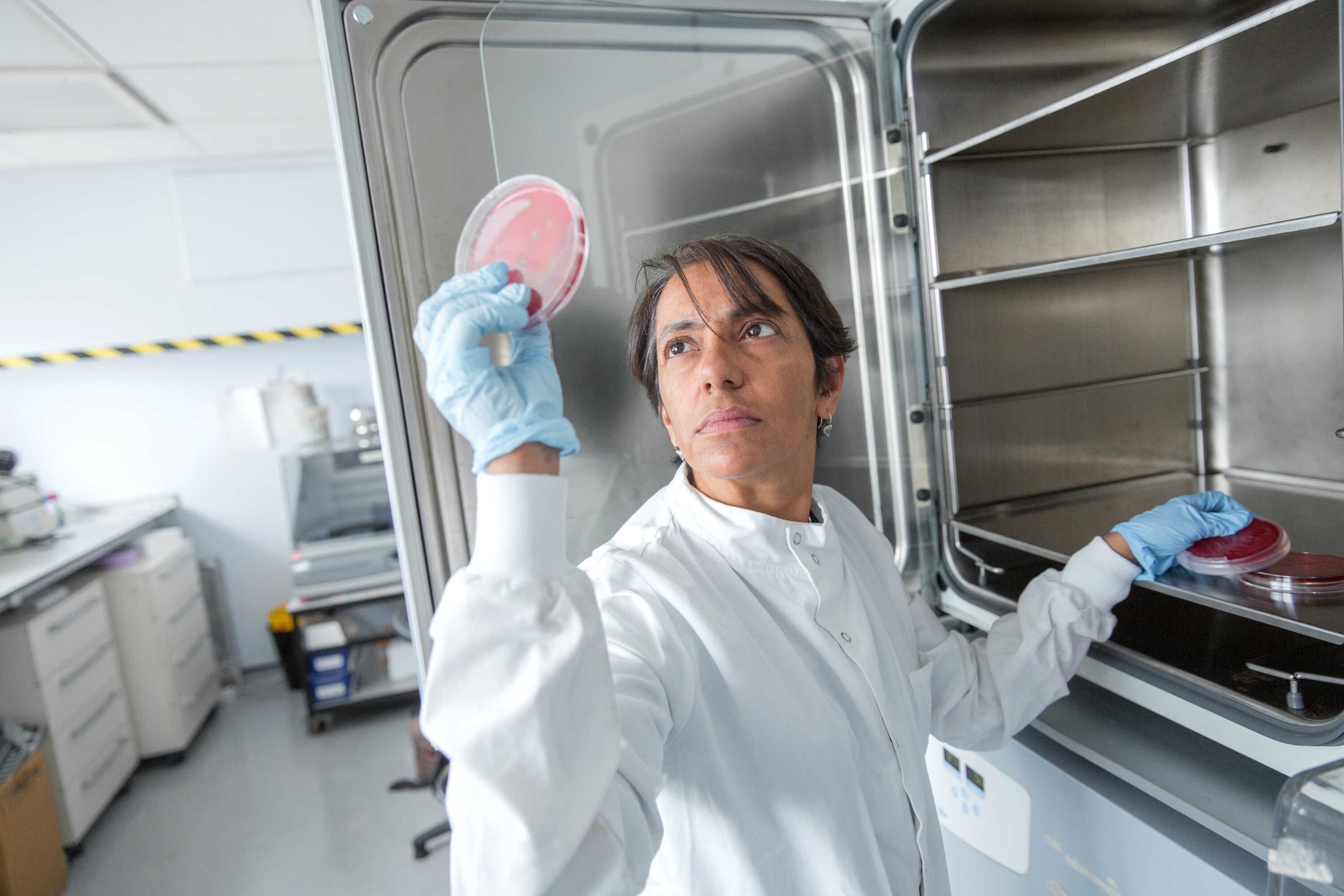
Epidemiology
Apply statistical and mathematical methods to epidemiological investigations, to inform public health practice.
Explore emerging epidemiological research and develop appreciation of modern biostatistical methods
Understand the application of statistical and mathematical methods to epidemiological investigation and practice
Conduct a four-month research project, supervised by experienced SPH academics, and develop skills for further PhD study or a career in epidemiology
Course key facts
-
Qualification
-
MSc
-
-
Duration
1 year
-
Start date
September 2025
-
Study mode
Full-time
-
Fees
£15,500 Home
£45,000 Overseas
-
Delivered by
-
Location
-
Hammersmith
-
South Kensington
-
White City
-
Minimum entry standard
-
2:1 in mathematics, statistics, medicine (human and veterinary) or biological sciences
Course overview
On this Master’s course, you’ll acquire advanced skills in epidemiology and biostatistics and develop knowledge of research methods commonly applied in epidemiology and public health.
You'll examine emerging research to build expertise in core epidemiological and statistical concepts to understand the distribution and causes of diseases in populations and explore possible prevention and control strategies.
You’ll also learn how to use mathematical models to understand the transmission of infections and to evaluate the potential impact of control programmes in reducing morbidity and mortality.
Using these skills, you’ll embark on an extended four-month research project, exploring an area of epidemiological research in further detail, under supervision of academics at Imperial and external research partners.
Epidemiology Accolades
.jpg)
-
1st in the UK (Public Health, Health Services and Primary Care) Research Excellence Framework (REF) 2021, based on the proportion of world-leading research.
-
3rd in the world Medicine and Dentistry, Times Higher Education World University Rankings by Subject 2022.
-
World-class study experience Benefit from close connections with healthcare partners and cross-departmental collaborations.
Structure
This page is updated regularly to reflect the latest version of the curriculum. However, this information is subject to change.
Find out more about potential course changes.
Please note: it may not always be possible to take specific combinations of modules due to timetabling conflicts. For confirmation, please check with the relevant department.
You’ll take all of the compulsory modules below.
Compulsory modules
Develop the knowledge and skills required to conduct and interpret statistical analyses of epidemiological and health data.
Learn about types of data, study designs, and statistical tools suitable for applied research and practice.
Explore core concepts of epidemiology and acquire the skills necessary to describe, analyse, interpret and appraise epidemiological studies.
Discover key theoretical concepts and techniques from fields such as philosophy, social sciences, epidemiology and statistics, discussed in the context of practical and ethical considerations to be made at each step of designing, planning, conducting and publishing research.
Learn how to mathematically model infectious diseases, simulate the model using a computer, and analyse it.
You’ll choose up to six optional modules from the list below.
Optional modules
Learn about the main theoretical concepts of the Bayesian approach to probability and inference and how they inform statistical modelling and interpretation. Acquire practical skills to manipulate, effectively visualize and model spatially- and temporally-related data, and critically interpret and discuss the results from analyses.
Design, execute and interpret results from streamlined versions of those same models.
Learn techniques required to calibrate mathematical models and make the best use of data.
Become familiar with the principles of advanced regression for high-dimensional data and apply these techniques on real data problems.
Develop skills to appraise public health strategies, control programmes, and surveillance systems for both emerging and neglected tropical diseases.
Understand the theoretical concepts and the practical methodology used in the genetic epidemiology of infectious pathogens, using recent real-life infectious disease epidemiology case studies.
Learn why and when an environmental epidemiology study is necessary and useful, and how to evaluate effects of short- and long-term exposures.
Learn the fundamentals of eating behaviour and nutrition surveillance, and apply nutritional epidemiological methods that are commonly used to guide the development of public health interventions and public health policy.
Uncover the main types of study designs used in molecular and genetic epidemiologic investigations and identify potential sources of bias and the methods used to limit them.
You'll carry out a four-month individual research project under supervision.
You'll articulate a research question relevant to the fields of epidemiology/ public health and employ a range of data collection and analytical methods to satisfy this question.
Your work will culminate with a written dissertation and oral examination.
Teaching and assessment
Balance of teaching and learning
Key
- Lectures, tutorials, practicals and group work
- Independent study
- Research project
Terms 1 and 2
- 25% Lectures, tutorials, practicals and group work
- 75% Independent study
- 0% Research project
Term 3
- 0% Lectures, tutorials, practicals and group work
- 0% Independent study
- 100% Research project
Teaching and learning methods
-
Lectures
-
Virtual learning environment
-
Tutorials
-
Seminars
-
Workshops
-
Group work
-
Office hours
-
Quizzes
-
Reading and pre-recorded materials
-
Discussion forums
-
Computing-based practicals
-
Independent study
Balance of assessment
Key
- Coursework
- Practical or presentation
- Timed written exam
Term 1
- 60% Coursework
- 10% Practical or presentation
- 30% Timed written exam
Term 2
- 50% Coursework
- 25% Practical or presentation
- 25% Timed written exam
Term 3
- 70% Coursework
- 30% Practical or presentation
- 0% Timed written exam
Assessment methods
-
Timed written examinations
-
Coursework
-
Mini research projects
-
Individual and group presentations
-
Video blogs
Entry requirements
We consider all applicants on an individual basis, welcoming students from all over the world.
How to apply
Apply online
You can submit one application form per year of entry. You can choose up to two courses.
There is no application fee for MRes courses, Postgraduate Certificates, Postgraduate Diplomas, or courses such as PhDs and EngDs.
If you are applying for a taught Master’s course, you will need to pay an application fee before submitting your application.
The fee applies per application and not per course.
- £80 for all taught Master's applications, excluding those to the Imperial College Business School.
- £100 for all MSc applications to the Imperial College Business School.
- £150 for all MBA applications to the Imperial College Business School.
If you are facing financial hardship and are unable to pay the application fee, we encourage you to apply for our application fee waiver.
Find out more about how to apply for a Master's course, including references and personal statements.
An ATAS certificate is not required for students applying for this course.
Tuition fees
Home fee
£15,500
You should expect and budget for your fees to increase each year.
Your fee is based on the year you enter the university, not your year of study. This means that if you repeat a year or resume your studies after an interruption, your fees will only increase by the amount linked to inflation.
Find out more about our tuition fees payment terms, including how inflationary increases are applied to your tuition fees in subsequent years of study.
Whether you pay the Home or Overseas fee depends on your fee status. This is assessed based on UK Government legislation and includes things like where you live and your nationality or residency status. Find out how we assess your fee status.
If you're a UK national, or EU national with settled or pre-settled status under the EU Settlement Scheme, you may be able to apply for a Postgraduate Master’s Loan from the UK government, if you meet certain criteria.
For courses starting on or after 1 August 2024, the maximum amount is £12,471. The loan is not means-tested and you can choose whether to put it towards your tuition fees or living costs.
The loan is not means-tested and you can choose whether to put it towards your tuition fees or living costs.
Overseas fee
£45,000
You should expect and budget for your fees to increase each year.
Your fee is based on the year you enter the university, not your year of study. This means that if you repeat a year or resume your studies after an interruption, your fees will only increase by the amount linked to inflation.
Find out more about our tuition fees payment terms, including how inflationary increases are applied to your tuition fees in subsequent years of study.
Whether you pay the Home or Overseas fee depends on your fee status. This is assessed based on UK Government legislation and includes things like where you live and your nationality or residency status. Find out how we assess your fee status.
If you're a UK national, or EU national with settled or pre-settled status under the EU Settlement Scheme, you may be able to apply for a Postgraduate Master’s Loan from the UK government, if you meet certain criteria.
For courses starting on or after 1 August 2024, the maximum amount is £12,471. The loan is not means-tested and you can choose whether to put it towards your tuition fees or living costs.
The loan is not means-tested and you can choose whether to put it towards your tuition fees or living costs.
Scholarships
SPH Masters Scholarship
Who it's for
- All students who make an application to the School of Public Health.
The Dean’s Master’s Scholarships
Value per award
- £10,000
Who it's for
- All students applying to study a Faculty of Medicine Master’s programme
How will studying at Imperial help my career?
Develop the skills required for an academic career in epidemiology, beginning with a PhD.
With specialised knowledge, you'll be highly sought after in a range of sectors.
This includes careers with public health organisations, pharmaceutical companies and non-governmental agencies.
Further links
Contact the department
Course Directors: Professor Nuno Faria and Professor Marta Blangiardo
Course Organiser: Dr Sungano Chigogora
Visit the School of Public Health website.

Register your interest
Stay up to date on news, events, scholarship opportunities and information related to this course.

Events, tasters and talks
Meet us and find out more about studying at Imperial.

Terms and conditions
There are some important pieces of information you should be aware of when applying to Imperial. These include key information about your tuition fees, funding, visas, accommodation and more.
You can find further information about your course, including degree classifications, regulations, progression and awards in the programme specification for your course.
Programme specifications